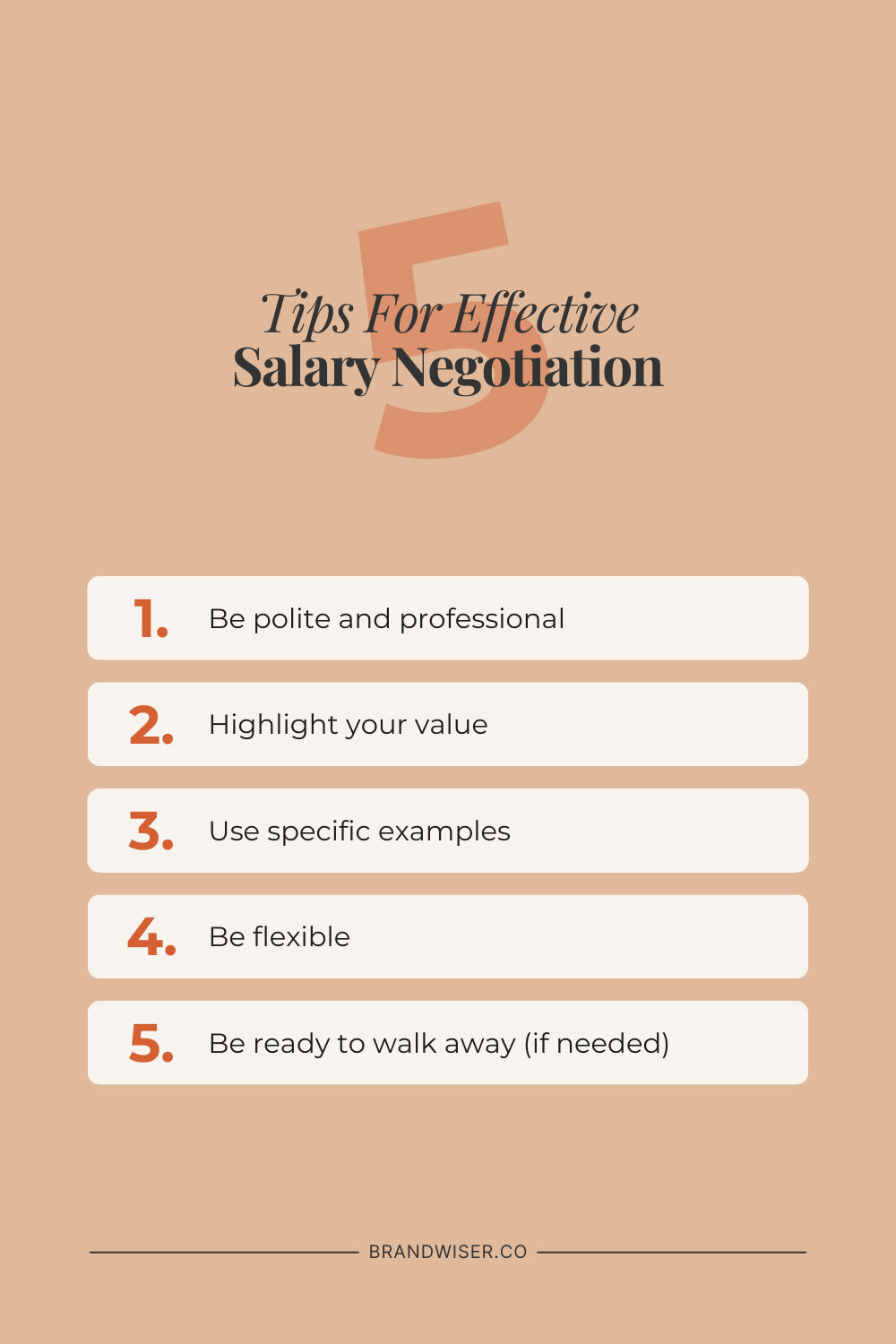Can You Negotiate After A 'Best And Final' Job Offer? A Practical Guide

Table of Contents
Understanding the "Best and Final" Offer
What does "best and final" really mean?
The phrase "best and final offer" is often used by employers as a negotiating tactic. While it might seem like a hard stop, it doesn't always mean they're completely unwilling to budge. From the employer's perspective, it's a way to streamline the hiring process and avoid protracted negotiations. However, the implication is that further negotiation is unlikely. This doesn't mean it's impossible; it just means you need to be prepared and strategic. Understanding the "best and final offer meaning" is crucial for your next steps.
- It's often a tactic, not always a hard stop. Many companies use this phrase to put pressure on candidates, but they might still have some flexibility depending on the circumstances.
- Assess the company’s reputation for negotiation. Research the company's culture and see if they're known for being flexible during the hiring process. Glassdoor reviews can often shed light on this aspect.
- Consider the urgency of your job search. If you have other promising offers on the table, you have more leverage to negotiate. If you're desperate for a job, your negotiating power is diminished.
Evaluating Your Leverage After a 'Best and Final' Offer
Assessing your market value
Before you attempt to negotiate a best and final offer, you need to know your worth. This means researching similar roles in your area to get an understanding of the average salary and benefits packages.
- Review similar job offers or salary data. Websites like Glassdoor, Salary.com, and Payscale can provide valuable insights into salary ranges for similar positions.
- Consider your skills and experience relative to market demand. Are your skills in high demand? Do you possess unique qualifications that make you a highly desirable candidate? The more in-demand your skills, the stronger your negotiating position.
- Evaluate the overall compensation package (beyond base salary). Don't just focus on the starting salary. Consider the benefits package, including health insurance, retirement plan contributions, paid time off (PTO), and any other perks offered.
Identifying potential negotiation points
Once you've assessed your market value, identify areas where you might be able to negotiate.
- Starting salary: This is often the primary point of negotiation.
- Signing bonus: A signing bonus can be a powerful incentive, particularly for competitive roles.
- Benefits package: You may be able to negotiate better health insurance coverage, a more generous retirement plan, or additional PTO.
- Relocation assistance: If the job requires relocation, you might be able to negotiate for assistance with moving expenses.
Strategies for Negotiating After a 'Best and Final' Offer
The Art of the Follow-Up
Responding to a "best and final offer" requires a delicate balance of enthusiasm and assertiveness.
- Express your enthusiasm for the opportunity. Begin by reiterating your excitement about the role and the company.
- Respectfully reiterate your value and qualifications. Highlight your skills and experience that align with the company's needs.
- Focus on specific areas for negotiation. Avoid vague requests. Instead, state your desired adjustments clearly and concisely, such as, "While I appreciate the offer, I was hoping for a slightly higher starting salary to align with my market value based on my research of similar roles."
- Present a counteroffer with justification. Back up your counteroffer with data and evidence to demonstrate the reasonableness of your request.
- Be prepared for their response – it might be a final "no." Have a plan B in place if your negotiation is unsuccessful.
Alternatives if Negotiation Fails
If your attempt to negotiate a better best and final offer is unsuccessful, be prepared to consider alternatives.
- Re-evaluate other job offers. If you have other offers, revisit them and compare them to the initial offer.
- Consider negotiating with the next-best option. Sometimes, revisiting a previous offer with newfound leverage can be successful.
- Continue your job search. Don't let one unsuccessful negotiation discourage you from pursuing other opportunities.
When to Walk Away From a "Best and Final" Offer
Knowing when to walk away is just as important as knowing when to negotiate.
Recognizing non-negotiables
Sometimes, the "best and final" offer highlights incompatibilities that make the job unsuitable.
- Company culture is a significant mismatch. If the company culture clashes strongly with your values and preferences, it's probably not worth pursuing.
- Compensation is far below market value. If the compensation is significantly less than what you're worth, it's not wise to accept, even if it's your only offer.
- The role isn't a good long-term fit for your career goals. Accepting a role that doesn't align with your long-term ambitions can lead to dissatisfaction and hinder career progression.
Conclusion: Successfully Navigating Your "Best and Final" Job Offer
Navigating a "best and final" job offer requires careful consideration of your market value, the company's culture, and your own career goals. Remember that while “best and final” is a common tactic, polite and well-justified negotiation is often possible. Knowing your worth and having alternatives significantly strengthens your position. Successfully negotiate your next best and final job offer by understanding the strategies outlined in this guide. Learn how to negotiate a better best and final job offer and master the art of negotiating after a best and final job offer. Don't be afraid to walk away if the offer doesn't meet your needs and expectations.

Featured Posts
-
 Indonesia Classic Art Week 2025 Menampilkan Kemewahan Porsche
May 24, 2025
Indonesia Classic Art Week 2025 Menampilkan Kemewahan Porsche
May 24, 2025 -
 Strengthening Ties Bipartisan Senate Resolution Celebrates Canada U S Partnership
May 24, 2025
Strengthening Ties Bipartisan Senate Resolution Celebrates Canada U S Partnership
May 24, 2025 -
 Porsche Cayenne Gts Coupe Test I Recenzja Suv Marzen
May 24, 2025
Porsche Cayenne Gts Coupe Test I Recenzja Suv Marzen
May 24, 2025 -
 Sheinelle Jones A Look At Her Recent Absence From The Today Show
May 24, 2025
Sheinelle Jones A Look At Her Recent Absence From The Today Show
May 24, 2025 -
 Konchita Vurst Ta Yevrobachennya 2025 Chotiri Potentsiynikh Peremozhtsi Za Yiyi Peredbachennyam
May 24, 2025
Konchita Vurst Ta Yevrobachennya 2025 Chotiri Potentsiynikh Peremozhtsi Za Yiyi Peredbachennyam
May 24, 2025
Latest Posts
-
 Joe Jonas Addresses Married Couples Dispute Over Him
May 24, 2025
Joe Jonas Addresses Married Couples Dispute Over Him
May 24, 2025 -
 Couples Fight Over Joe Jonas His Unexpected Reaction
May 24, 2025
Couples Fight Over Joe Jonas His Unexpected Reaction
May 24, 2025 -
 Joe Jonass Hilarious Response To Married Couples Fight
May 24, 2025
Joe Jonass Hilarious Response To Married Couples Fight
May 24, 2025 -
 Joe Jonas Responds To Couples Dispute The Full Story
May 24, 2025
Joe Jonas Responds To Couples Dispute The Full Story
May 24, 2025 -
 The Last Rodeo An Examination Of Neal Mc Donoughs Contribution
May 24, 2025
The Last Rodeo An Examination Of Neal Mc Donoughs Contribution
May 24, 2025
